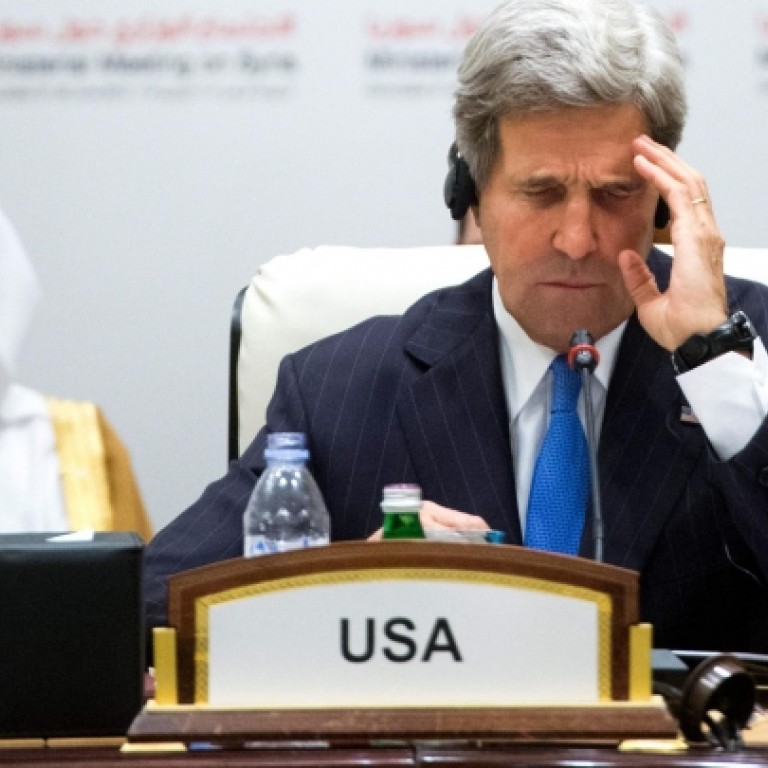
Top US diplomat Kerry has put a lot on the line but has yet to delivery
With no election around the corner, America's top diplomat has been thinking big
In four months as United States secretary of state, John Kerry has certainly promised great things. Now he has to deliver.
In the Middle East, he has raised hopes that his solo diplomatic effort can produce a historic breakthrough ending six decades of Arab-Israeli conflict.
He has pledged to bring Syrian President Bashar al-Assad's government to heel and to work with Russia to end Syria's civil war.
He has suggested rolling back US missile defence in the Pacific if China can help rid North Korea of nuclear weapons. He has hinted at possible one-on-one talks between the US and the reclusive North Korean leader, Kim Jong-un, if it would help.
Since succeeding Hillary Rodham Clinton as America's top diplomat, Kerry has issued several as yet undelivered - and perhaps undeliverable - pledges to allies and rivals alike, proving a source of concern for President Barack Obama's policy team. It is trying to rein in Kerry somewhat, according to officials, which is difficult considering Kerry has spent almost half his tenure so far in the air or on the road.
Aides say Kerry, a 69-year-old Vietnam veteran, is giving himself completely to a job that in many ways is the climax of his political career and the realisation of a lifelong dream after years as chairman of the Senate Foreign Relations Committee.
Kerry, State Department spokeswoman Jen Psaki said, "believes this difficult moment in the world requires a willingness to address complicated issues. He believes the risks of high-stakes, personal diplomacy are far less than the risk of leaving difficult situations to fester or spiral out of control. That's why he has invigorated our efforts in critical areas - such as North Korea, Syria and the Middle East peace process - and has personally invested time and effort to move the ball forward."
No challenge may be bigger than Syria, where a two-year civil war has killed at least 93,000 people. Kerry announced that his first trip abroad would focus on changing Assad's belief that he could prevail militarily and on pushing him into giving up power. Since then, however, the fighting has only got worse.
Kerry changed strategy by going to Moscow to relaunch a peace process for Syria. He boasted that the former cold war foes just accomplished "great things when the world needs it" by deciding to convene an international conference, perhaps by the end of May, that would include Syria's government and rebels.
That conference has been delayed until at least July, and maybe August, and it might never come off at all given the opposition's refusal to negotiate while it is losing land to Assad and getting so little help from Western powers. That failure falls directly on Kerry, who was given the task of delivering the opposition to the bargaining table.
On Middle East peace, too, Kerry has put his credibility on the line. He has made four trips to the region to meet Israeli Prime Minister Benjamin Netanyahu, Palestinian Authority president Mahmoud Abbas and senior government members from both sides. Kerry will visit the region again this week to try to push the two sides back into talks, despite little to show so far for his efforts.
For all his idiosyncratic style, Kerry has not dodged any diplomatic fight and, with no election around the corner and few worries about his image, Kerry has shown a willingness to think big.
Ben Rhodes, Obama's deputy national security adviser, praised Kerry's efforts so far.
"None of these are issues that you can solve in a few months," Rhodes said. "The fact that he is taking these on with the energy he has is a great asset to the administration."
Soon, however, he will have to produce.
